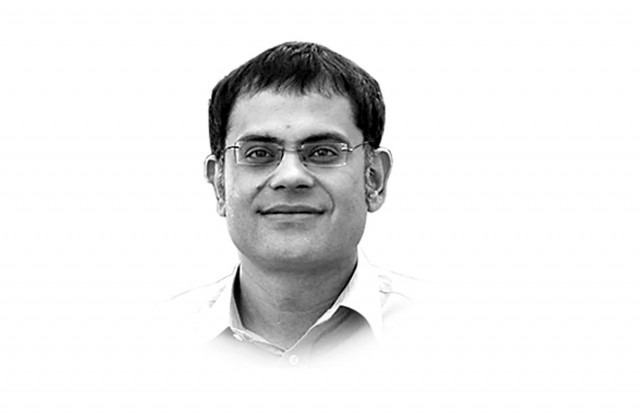A question of accountability
Rising power of media as well as usual tendency of judiciary to not hold itself accountable is still not understood.

The PPP’s victim card — of being wronged by the establishment and the courts — is not entirely unfounded. Yet, this Supreme Court is not the court of the past. The lawyers’ movement (2007-9) allowed for an unprecedented populist backing to the courts and now many vested interests and groups deem the courts a natural ally in their own quest for independence, leverage and profits.
Public officials must be held accountable for their transgressions. This is vital for effective governance as well as for building legitimacy of democratic institutions. In purely technical terms, the Court’s decision is a welcome one. No longer can the executive be allowed to trample on judicial orders. After all, a letter to the Swiss authorities seeking the reopening of a case against President Asif Ali Zardari may have averted the crisis. Presidential immunity in the international and domestic laws is a given. However, in hindsight, this was a great opportunity for the PPP to underscore the fact that it is always the victim of selective accountability.
The cases against President Zardari and twice-elected Prime Minister Benazir Bhutto were registered by their political opponents, i.e., military-backed arbitrary presidents; and the main opposition party, which till 1999 was on the right side of the establishment. This context cannot be divorced from the legal aspects of the case. That said, at the end of the day the courts decide on issues of law and fact. The truth is that the Pakistani state has used cases against the PPP leadership as instruments of power and negotiation through the decades. This is why the perception within the PPP support base especially in Sindh (and now southern Punjab) is that the court’s verdict is not a ‘fair’ one given that other political parties and state institutions have gotten away with far worse.
As for the Supreme Court, it has done its job according to its interpretation of the Constitution and law. That, however, will not prevent the PPP from using the conviction to ramp up its support, especially with the next election around the corner.
Moving on, the role of some TV channels and anchors in acting as lawyers, judges and prosecutors has been most worrying. Legal issues require informed debate and political commentary requires objectivity. Both were missing before and after the Supreme Court verdict. This brings us to the vital issue of accountability of the new players in the power game.
The higher courts are accountable via the Supreme Judicial Council. The latter’s record has not been encouraging, as far as holding members of the superior judiciary accountable is concerned. Similarly, the media — or large segments of it — acts as if it is not accountable to any authority. Pemra is there but its own independence and credibility is seen by many as being compromised. Compare this with to elected institutions and members of parliament: they are accountable both to the electorate, via elections, and increasingly to the judiciary via such cases.
The rising power of the media as well as the usual tendency of the judiciary to not hold itself accountable is a recent development and it is still not understood. Whether this phenomenon will hinder or bolster the process of democratic development remains to be seen.
Published in The Express Tribune, April 28th, 2012.















COMMENTS
Comments are moderated and generally will be posted if they are on-topic and not abusive.
For more information, please see our Comments FAQ